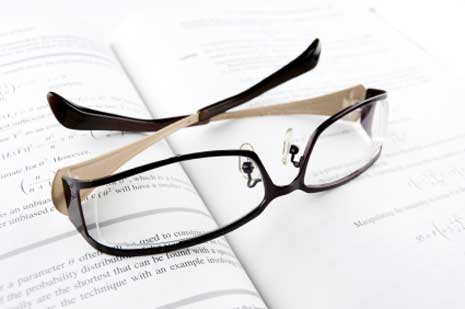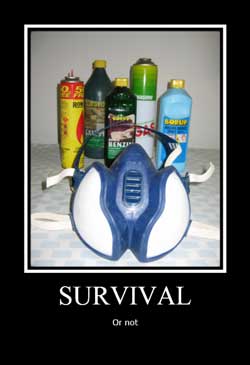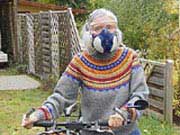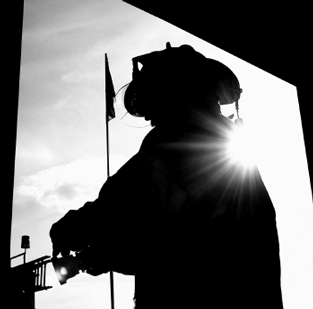
P.A.N.D.O.R.A. NeuroEndocrineImmune (NEI) Center Resolution Approved by the New Jersey State Senate
Coral Gables, FL, July 17, 2010 –(PR.com)– Resolution SR-20 supporting the establishment of the NeuroEndocrineImmune (NEI) Center™, the first research center in the state of New Jersey and in the U.S., dedicated to understanding and treating chronic neuroendocrineimmune (NEI) illnesses which includes chronic fatigue syndrome, fibromyalgia, multiple chemical sensitivity, Gulf War Illness and other bacterial & viral infections chronic illnesses was passed unanimously by 38-0 votes by the New Jersey State Senate on June 10, 2010.
Senate Resolution (SR) 20, sponsored by Senator Christopher “Kip” Bateman (R), Senate Deputy Conference Leader, and Senator Loretta Weinberg (D), Chair of the Senate Health Committee, cited studies that an estimated 20 million American adults and children suffer with NEIDs. The economic impact and loss of worker productivity in the United States due to CFS/ME, alone, is estimated to be over $9 billion per year. Chronic illness represents 75% of all the health care costs in the U.S.
“It makes sense to locate the NEI center in New Jersey,” said Senator Weinberg. “As the nation’s medicine chest, New Jersey is home to research institutions and private businesses that can cooperate to find a cure for these debilitating diseases.”
Senator Bateman added, “I look forward to the passage of Senate Resolution 20, solidifying legislative support for the research center, and have high hopes that this will, in fact, be a great step forward toward finding answers for the sufferers of these debilitating diseases.”
Assembly Resolution 202 passes unanimously
Late last year, a similar resolution unanimously passed the New Jersey State Assembly 78-0. “Having a research center… is essential to promoting research into the etiology of, and therapeutic interventions for neuroendocrineimmune disorders (NEIDs),” according to Assembly Resolution (AR) 202 which was sponsored by Assemblyman Upendra Chivukula (D), Deputy Speaker; Assemblyman Herb Conaway, Jr. (D), Chairman, Health Committee; Assemblywoman Connie Wagner (D), Vice-Chairman; and Assemblywoman Mary Pat Angelini (R), member of the Health Committee
P.A.N.D.O.R.A. partners with the Lanford Foundation-Lifelyme™, Inc.
To be based in Newark, New Jersey, the NeuroEndocrineImmune (NEI) Center™ is a community patient-driven project of P.A.N.D.O.R.A, (Patient Alliance for Neuroendocrineimmune Disorders Organization for Research & Advocacy, Inc) in partnership with the Lanford Foundation-Lifelyme™, Inc.
The NEI Center™ is the first research center to incorporate scientific and clinical research, quality in patient care, and social services, all in one state-of-the art facility. The establishment of The NEI Center™ is based on the philosophy that the similarities in symptoms of neuroendocrineimmune disorders (NEIDs) are the human body’s response to similarities in the underlying pathophysiologies that cause these disorders.
The cornerstone of the NEI Center’s mission is that discoveries and advances made in any one of the NEIDs will be applicable and beneficial to other NEIDs, thereby bringing medical researchers closer to a cure. At its inception, the NEI Center™ will include research of the following disorders/illnesses:
Chronic fatigue syndrome (CFS), fibromyalgia (FM), Gulf War syndrome or illness (GWS/I), multiple chemical sensitivity (MCS), and other associated bacterial and viral illnesses.
“Moral and political victory,” said Marly Silverman, a CFS and fibromyalgia patient who founded P.A.N.D.O.R.A. in July 1, 2002, “On behalf of P.A.N.D.O.R.A., we are mindful of the historical significance of the unanimous vote by the New Jersey Senate as well as by the New Jersey Assembly in 2009. Patients across this country will be celebrating what is an amazing and pivotal moment in the history of the neuroendocrineimmune disorders community. The New Jersey Legislature has demonstrated a caring commitment to a community of patients who for the first time in the state of New Jersey can look forward to a brighter and fruitful future.”
Veny W. Musum, chairman of the NEI Center Project, who was diagnosed with chronic Lyme disease in 2004 along with his wife, Patricia, added, “The passage of SR 20 is a moral and political victory for millions of individuals stricken with neuroendocrineimmune disorders who have been living far too long without the compassionate support, research and treatment options they deserve. I am proud of my state of New Jersey!”
Advocates Extraordinaire™ & community support
“The overall community support has been outstanding for this patient-driven, physician-approved project. The unanimous votes by each New Jersey senator came about because of the involvement of individuals who participated in the Advocate Extraordinaire™ program, by making calls, writing e-mails and thanking the New Jersey Legislature for their vision and support of the Center,” said Dr. Kenneth Friedman, one of the founding board trustees of the NEI Center, as well as former member of the CFS Advisory Committee, and a member of the Executive Board of P.A.N.D.O.R.A.
“The New Jersey legislators unanimous support for the NEI Center reflects the kind of leadership needed to bring about positive change in our nation’s Health Care,” said Sandi Lanford, Co-founder of the NEI Center™ and the President-Founder of the Lanford Foundation-Lifelyme™, Inc, who was born and raised in New Jersey. The overall community support has been outstanding for this patient-driven, physician- approved project. The unanimous votes by the New Jersey Legislature came about because of the involvement of individuals who participated in the Advocate Extraordinaire™ program, by making calls, writing e-mails and thanking the New Jersey legislators for their vision and support of the Center,” said Dr. Kenneth Friedman, one of the founding board trustees of the NEI Center, as well as former member of the CFS Advisory Committee, and a member of the Executive Board of P.A.N.D.O.R.A.
Dr. Lesley Fein, member of the NEI Center Project team, stated “This center will be a beacon of hope for patients nationwide, and a place which will bring scientific innovation in New Jersey as well as in the rest of the country.”
Present at the passage of the law were Veny Musum, Chairman of the NEI Center Project and Debbie Floyd, team member of the NEI Center™ project.
NEI Center set to open by 2012
The NEI Center founders are already preparing fundraising efforts to make the Center operational by late 2011-early 2012. For more information about The NEI Center™, visit www.neicenter.com.
-
About P.A.N.D.O.R.A., Inc- Patient Alliance for Neuroendocrineimmune Disorders Organization for Research & Advocacy – Based in Coral Gables, Florida, P.A.N.D.O.R.A. was founded on July 1, 2002 by Marly C. Silverman, a chronic fatigue syndrome and fibromyalgia patient. Its mission is to raise awareness of the plight of persons with chronic fatigue syndrome, fibromyalgia, chronic Lyme disease, multiple chemical sensitivities/EI, and Gulf War illness, and advocate on quality of life issues. P.A.N.D.O.R.A.is Built on Hope – Strong on Advocacy – Finding a Cure through Research. For more information, visit www.pandoranet.info.






